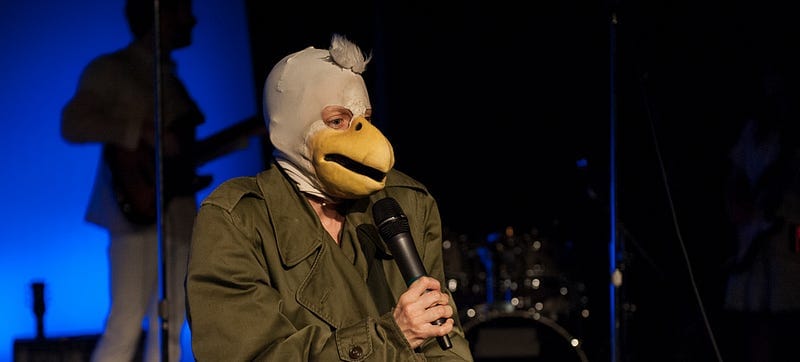Empire of Illusion and Gloria’s Cause
“in a sound-bite society, reality no longer matters.” Chris Hedges

Recently, there have been two elegies about America that encourage me to continue asking questions. Last Sunday, I attended a revision of Dayna Hanson’s performance inquiry into how the gritty reality of America’s founding fathers intersects with America’s current struggles. Last night, I finished reading Chris Hedges’ diatribe about the collapse of the American Empire. Rather than a review, this is a reflection and a call to lay to rest a dysfunctional America.
Hedges’ Empire of Illusion: The End of Literacy and the Triumph of Spectaclewill serve as a guide to delve into Hanson’s performance about America. Empire of Illusion tackles the cry that America is at the end of an empire. I’ve heard this before, but Hedges writes with an in-depth intensity that makes me comprehend the urgency of this death-knell. His book is neatly laid out with five simply titled chapters that cover the illusion of literacy, love, wisdom, happiness and America.
This was the third time I have experienced Hanson’s Gloria’s Cause. The first was a rehearsal preview last summer. The second was a workshop performance at the TBA Festival in Portland last September. In the most recent version at On the Boards in Seattle, the costumes and set were no-nonsense. The cast wore tailored business suits with occasional costume changes to represent the American bald eagle, George Washington, troops at Valley Forge and so forth. Musicians Maggie Brown, Paul Moore, Dave Proscia and others with trap set, electric guitars and bass, vocal mics, keyboard and trombone perform atop a scalloped platform and carpeted stage.
Likewise, Hedge’s no-nonsense Empire of Illusion begins directly with a chapter on literacy that starts with a description of the World Wrestling Entertainment Tour and continues through other media circuses: “This cult of distraction… masks the real disintegration of culture… It deflects the moral questions arising from mounting social injustice, growing inequities, costly imperial wars, economic collapse and political corruption… The fantasy of celebrity culture is not designed simply to entertain. It is destined to keep us from fighting back” (38). Throughout Gloria’s Cause, questions are raised about the foundations on which America is built. Bodies hunch over and contort. Characters speak at the blue carpet or through a Benjamin Franklin doll or sing incomplete songs through hand-held mics. The fragmented text shows a literacy fractured through the onslaught of entertainment created to distract.
In his second chapter on love, Hedges attacks the debilitating effects of the porn industry: “Porn is about reducing women to corpses. It is about necrophilia” (82). This chapter goes into terrifyingly dehumanizing places to show how sexual violence brings about a numbness for audiences and performers who consume and are consumed. In Gloria’s Cause, Hanson contrasts an opening of two suited men performed by Pol Rosenthal seated facing the audience and Wade Madsen standing in profile. Two nude female bodies dance in unison, faceless and de-sexualized. The opening contrast of suits with lack-of-suits, speaking with non-speaking, eating with not-being-eaten causes a numbness that is broken by a recess where the entire cast rocks out in an American popular dance show-stopper.
The performance continues to include memorable moments such as Peggy Piacenza’s American bald eagle existential monologue and Madsen’s hip-hop-poppin’ animatronic George Washington. Both characters ultimately break down through movement to offer a glimpse into another reality. Riffing off of the “inverted totalitarianism” that Sheldon S. Wolin proposes, where the corporate state has an anonymous grip on every citizen’s livelihood, Hedges writes that “corporate media control nearly everything we read, watch or hear. It imposes a bland uniformity of opinion. It diverts us with trivia and celebrity gossip.” Gloria’s Cause upends the diversion with the painful reality of the iconic American bald eagle and robotic George Washington becoming debilitated. Revered symbols have no power when people starve. Hedges writes “as the government squanders taxpayer money in fruitless schemes to prop up insolvent banks and investment houses, citizens are thrown into the streets without work, a place to live, or enough food. There are now 36.2 million Americans who cope daily with hunger” (161). Trivia and gossip leave empty stomachs which show a lost eagle and hollow first president. In the performance, the eagle ends with a dance of death and Washington, who has run out of steam, can only sigh when prodded with a rifle.
New performance moments include a drunk Washington fighting with troops from Valley Forge (played by Jim Kent and Jessie Smith) at a Jerry Springer-like talk show. In a rousing tirade, Kent yells that even soldier uniforms were neglected to where shredded pants showed the “penis dangling out and balls shrunken up.” This was in the late 1700s, during the American Revolutionary War. In the past 70 years, the federal government has squandered more than half of tax payers money on the military. Yet, when I turn on the radio, I don’t hear of the $700 billion dollars the Pentagon received for their 2010 budget. Rather, I hear a sobbing father who remembers his son, a returning soldier who has committed suicide before being sent back to war. Hedges writes that “the U.S. military spends more than all other militaries on earth combined.” (144) This has led to a debt that is more than $11 trillion dollars. Hedges calculates this at over $36k per person: “The bill is now due. America’s most dangerous enemies are not Islamic radicals but those who sold us the perverted ideology of free-market capitalism and globalization. They have dynamited the foundations of our society” (151).
Aspects of Gloria’s Cause are deliberately obtuse. Conformist corporate outfits hide the truth, so I know to search for clues elsewhere. By having the cast in suits rather than a red Coca-Cola t-shirt or a Daniel Boone coon-tail cap, I relied more on what the performers told me through movement and pauses. Even the media, according to Hedges, hides the truth: “Television journalism is largely a farce. Celebrity reporters, masquerading as journalists, make millions a year and give a platform to the powerful and the famous so they can spin, equivocate and lie…. No journalist has a comfortable, cozy relationship with the powerful. No journalist believes that serving the powerful is a primary part of his or her calling. Those in power fear and dislike journalists” (169). Similarly, performers like those who perform at On the Boards, are oftentimes jarring and uncomfortable, because the platform, in the set of Gloria’s Cause, is actually not stable even though the carpet may be thick. Nonetheless, the performers at On the Boards reveal the uncozy truths of reality.
In chapter three, Illusion of Wisdom, Hedges shows how academia has sold out to corporate interests: “Any form of learning not strictly vocational has at best been marginalized and in many schools abolished. Students are steered away from asking the broad, disturbing questions that challenge the assumptions of the power elite. They do not know how to interrogate or examine an economic system that serves the corporate state. This has led many bright graduates directly into the arms of corporate entities” (108–109). Hedges notes that business majors are now 21.7 percent of the graduating population and that education majors have fallen from 21 percent to 8.2 percent (108). Even more surprising for me was learning that the highest paid employee at the University of California at Berkeley is the football coach: “He makes about $3 million,” writes Hedges (94). Berkeley, which was at one time the bastion of student radicalism and social justice in America, has sold out, most horrifyingly in the bankrupt state of California. Hedges admonishes that “a culture that does not grasp the vital interplay between morality and power, which mistakes management techniques for wisdom, which fails to understand that the measure of a civilization is its compassion, not its speed or ability to consume, condemns itself to death” (103). How can we navigate through morality and power to create values that result in a compassionate world? Hanson and her cast attempt at providing insight into the morass that has become America.
In my search, I read a lot of non-fiction with my guilty pleasure being self-help books. Now, I realize how easily these books lead to self-delusion. Hedges’ chapter on the illusion of happiness tackles positive psychology. Hedges writes that “there is a dark, insidious quality to the ideology promoted by the positive psychologists… They strangle creativity and moral autonomy… Its false promise of harmony and happiness only increases internal anxiety and feelings of inadequacy” (138). Hedges uses the example of how corporations train employees to provide a “positive customer service experience” (137). Employees must act happy or risk losing their job and join the one in six Americans who live in poverty. In Gloria’s Cause, the American bald eagle monologue/dance-of-death unravels this illusion of happiness to show the truthful pain of confusion and loneliness within many Americans.
While it was difficult to experience Gloria’s Cause and read Hedges’ Empire of Illusion, I appreciated many insightful moments. In the performance, there was a slide show that juxtaposed aspects of America from Elvis to cigarettes to civil rights to prison cells. For me, this showed the greatness and ugliness of America, but most significantly I came away with the sense that individuals have overcome oppression. Hedges’ writes personally in his final chapter, the Illusion of America: “The country I live in today uses the same civic, patriotic and historical language to describe itself, the same symbols and iconography, the same national myths, but only the shell remains. The America we celebrate is an illusion…. Our nation has been hijacked by oligarchs, corporations and a narrow, selfish, political and economic elite, a small and privileged group that governs, and often steals, on behalf of moneyed interests” (142). Gloria’s Cause shows the private moments of an earlier elite in America. How they floundered. How they confused. How they had their own self-interest in mind. Hedges continues in his writing about current Americans in power: “This elite, in the name of patriotism and democracy… has systematically destroyed our manufacturing sector, looted the treasury, corrupted our democracy and trashed the financial system” (142).
It is difficult to listen to the truth. It is more difficult to live within the truth. Hedges unravels illusions. Hanson and her cast show ways to reconsider the foundation of America. I offer my thoughts as a way to continue to question in a certain way, to put aside the why and gather courage for the how. Rather than why is America at the end of an empire, I ask how can I continue to live as an American? Informed by reading Empire of Illusion and experiencing Gloria’s Cause, I am initially cautious. What keeps me going is the knowledge that every end signals a beginning.
Originally published in the On the Boards Journal on December 7, 2010, at classic.ontheboards.org
